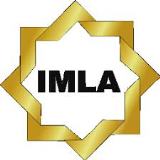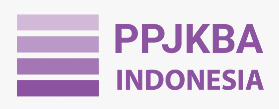PERAN TAKMIR MASJID DALAM PENCEGAHAN PERILAKU KORUPSI DI LINGKUP PEMERINTAHAN DAERAH
DOI:
https://doi.org/10.21274/ahkam.2023.11.1.169-184Keywords:
Role, Mosque Takmir, Corrupt BehaviorAbstract
The role of corruption prevention carried out by mosque takmirs is in the secondary prevention category, namely the role in the form of facilitating preachers and ulama to take a religious approach. This article aims to analyze the role of mosque takmirs in preventing corrupt behavior in the scope of regional government. This article is organized based on descriptive qualitative research approach, the results of the research show that: there are two forms of activities that are generally carried out in government-wide mosques as a form of prevention against corrupt behavior. The first activity that researchers categorize as "heart control activities" is activities that sharpen the heart or activities that increase dhikr (remembering Allah) in the form of reading ratibul hadad, istigosah, tahlilan or sholawatan. In these two mosques, these activities are carried out as routine activities after morning prayers and on Friday nights. Controlling the heart with these dhikrs is a form of preventing deviant behavior that is most decisive for a person's behavior. Secondly, the activity that researchers categorize as "mind control" is thought processing activities which are mostly carried out in the form of presenting religious speakers (kiyai, ustazd) to convey religious advice. This preventive activity is carried out regularly every Friday and at on major Islamic religious holidays, the speakers presented in this activity are Islamic figures from Islamic organizations who have religious knowledge in the fields of fiqh, ushul fiqh, tafsir and other Islamic knowledge. So, the religious messages that are often conveyed by preachers are how humans have a fear of God's law which has been promised in the Koran and hadith as well as books of fiqh and tafsir.
References
Asmani, Jamal Ma’mur, The Law of Positive Thinking, Yogyakarta: Gara Ilmu, 2009.
Elfiky, Ibrahim, Terapi Berpikir Positif, Jakarta: Zaman, 2015.
Hasan, Khairudin, “Peran Pendidikan Agama dalam Mencegah Korupsi”, At-ta’dib : Jurnal Ilmiah Pendidikan Agama Islam, Vol. 11, No. 1, 2019.
Hendartyo,Muhammad, ”KPK Minta Bupati Tulungagung dan Wali Kota Blitar Serahkan Diri” dalam https://nasional.tempo.co/read/1096512/kpk-minta-bupati-tulungagung-dan-wali-kota-blitar-serahkan-diri, 2018.
Humas KPK, ”Tiga Strategi Mencegah Korupsi”, dalam https://www.kpk.go.id/id/berita/berita-kpk/1482-tiga-strategi-mencegah-korupsi, 2020.
Madjid, Nurcholish, Islam Doktrin Dan Peradaban, Jakarta: Paramadina, 2000.
Munawir, Kamus Al-Munawwir (Arab-Indonesia), Surabaya: Pustaka Progressif, 1997.
Soekidjo, Pendidikan Dan Perilaku Kesehatan, Jakarta: Rineka Cipta, 2012.
Utari, Indah Sri, Faktor Peyebab Korupsi, Pendidikan Anti Korupsi Untuk Perguruan Tinggi, Jakarta : Kementerian P dan K Direktorat Jenderal Perguruan Tinggi, 2011.
Winarto, Juli Widyaiswara, “Menangkal Korupsi Dengan Memahmi Fraud Triagle”, Makalah, 2020.













